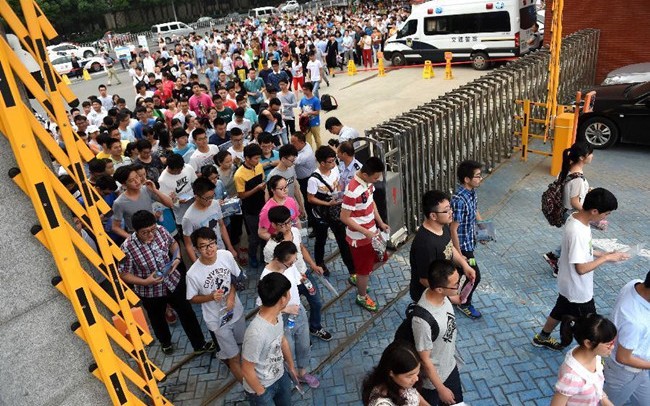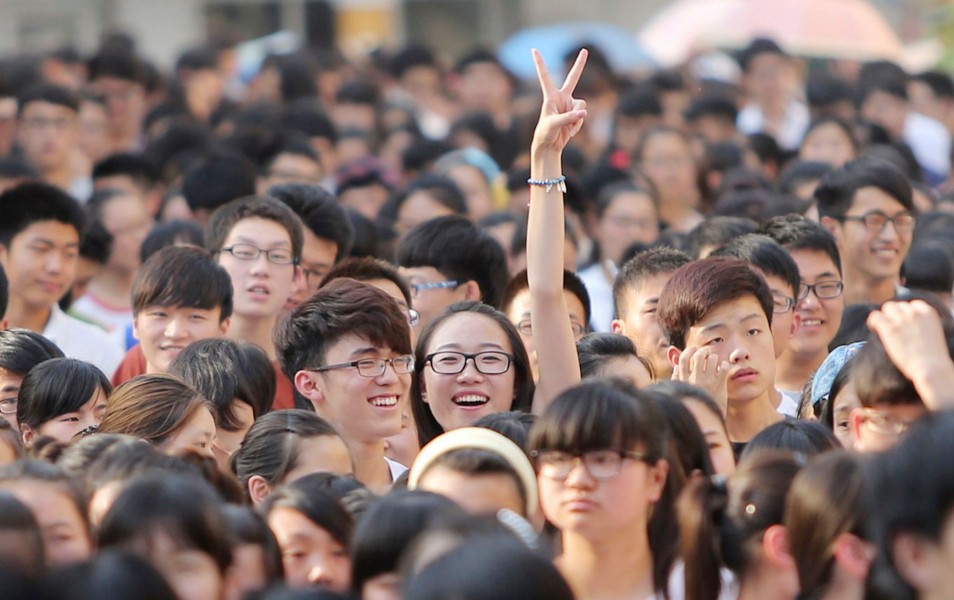China’s annual university placement examinations, commonly known as the gaokao, have been rocked by allegations of rampant fraud that has led to the immediate arrests of two ghostwriters who were taking the test as paid substitutes. This morning, the arrest count climbed to nine.
The Southern Metropolis Daily, a newspaper in Guangzhou, published a report Sunday that said one of its reporters had successfully infiltrated a gang that specializes in providing paid substitutes to not only take the gaokao, but ensure a passing grade.
The person named in the report as a test-taker was escorted out by police during the examination on Sunday in the Jiangxi capital of Nanchang. Another person suspected of academic fraud was arrested in Yingtan, also in Jiangxi. Meanwhile, the Jiangxi ministry of education says it will check students’ identities more rigorously before taking the gaokao.
The undercover reporter revealed that the “cheaters-for-hire” were mostly Hubei university students who were each able to earn between RMB 70,000 and RMB 100,000, with higher test results winning higher payments. One parent is to have paid one million yuan ($161,000) after the illegal gang helped garner a spot at a top Chinese university for his child.
Many of the substitute test takers were reported to be veterans of the trade.

The Ministry of Education said it has asked the public security ministry to oversee an investigation into the allegations. The ministry said cheating on the gaokao could amount to a punishable crime. The ministry also said students who hire substitutes to take the exam will be disqualified, while any paid substitutes caught taking the exam as a proxy for other students will be expelled.
But that’s not the only controversy arising from the investigative report. The other is whether going undercover as a journalist to expose the wrongdoing is ethical.
Chen Baocheng, a reporter with Caixin Media, criticized the undercover reporter’s use of another person’s identity to gain admittance to the exam. Chen said that since the undercover reporter committed the same crime as the those he was attempting to expose, he should be punished as well. “A news article is no excuse,” Chen said.
However, the Southern Metropolis Daily said it took several steps to differentiate itself from the criminal gang. Prior to the investigation, the undercover reporter informed local law enforcement of his intentions. On the test paper, the reporter revealed his identity and voided the document, the student whose identity was appropriated will not benefit from the fake gaokao attempt, and the paper reported its findings to the police, which led to at least one of the arrests. “It’s what a journalist should do,” said Xu Qingliang, former executive editor of Southern Metropolis Weekly.
That didn’t convince everyone. Wang Tianding, a professor at the journalism and communications school at Xi’an International Studies College, said the covert journalist’s eye-catching story might not be appropriate because sitting in as a replacement for others in the national exam is illegal, and therefore the reporter may have committed a crime.
However, Yi Shenghua, a Beijing-based criminal lawyer, disagreed. “Though there are discussions on whether the reporter’s behavior is appropriate or not, it’s not illegal under the law,” he said, adding that the reporter did not financially benefit from the act and had no intention of committing a crime.
All the same, authorities appear to have become more vigilant against cheating on the gaokao. Other recent developments include a ban on wearing the Apple watch during the test as well as photographs showing a security guard taking away a kitten that was discovered sneaking onto the examination hall.

